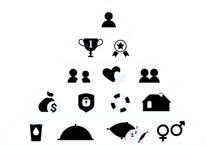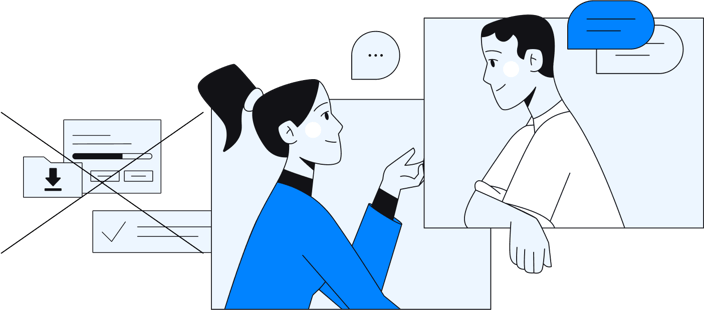- Filter By Topics
- All
- AI in HR
- HR Technology
- Performance Management
- Future of Work
- Digital HR Transformation
- Employee Experience
- Labor Law
- Recruitment
- COVID-19
- HR
- Software Suggestions
- Dialogue With Darwin
- Payroll
- Employee Engagement
- Life at Darwinbox
- People Analytics
- Rewards & Recognition
- Philippines
- Security & Compliance
- Talent Management
- UAE
- Leaves & Attendance
- Company Culture
- HR Evolution
- HRMS
- Leadership Interview Series
- Onboarding
- Case Study
- HR Trends
- HR Strategy
- Hybrid Work
- Product Update
- HR in Manufacturing
- Next-Gen HCM
- HR Tech Trends
- Indonesia
- Smarter Worklife
- Travel & Expense
- HR in Banking
- Customer Success Stories
- Employee Benefits
- HR Analytics
- Workplace Communication
- ChangeMakers
- Compensation & Benefits
- Darwinbox for CIOs
- Employee Feedback
- Employee Onboarding
- HR Policies
- HR in IT/ITeS
- Learning & Development
- OKR
- Total Rewards
- Leadership
- Time & Attendance
- USA
- Data Security
- HR Automation
- HR in Insurance
- Hiring
- Workforce Management
- Year in Review
- Employee Listening
- Employer Branding
- HR Department
- HR Planning
- HR Service Management
- HR Tools
- HR for Startups
- Singapore
- hr practices
- Business Operations
- CEOs in HR
- Diversity in Workplace
- Employee Engagement Survey
- Employee Retention
- Global Payroll
- Guest Post
- HR Manager Challenges
- HR Priorities
- HR Reporting Software
- HR Risk Management
- HR in Retail
- Holidays
- Localization
- Malaysia
- Payroll Operations
- Regulatory Compliance
- customer support
- AAll
- AI in HR
- HR Technology
- Performance Management
- Future of Work
- Digital HR Transformation
- Employee Experience
- Labor Law
- Recruitment
- COVID-19
- HR
- Software Suggestions
- Dialogue With Darwin
- Payroll
- Employee Engagement
- Life at Darwinbox
- People Analytics
- Rewards & Recognition
- Philippines
- Security & Compliance
- Talent Management
- UAE
- Leaves & Attendance
- Company Culture
- HR Evolution
- HRMS
- Leadership Interview Series
- Onboarding
- Case Study
- HR Trends
- HR Strategy
- Hybrid Work
- Product Update
- HR in Manufacturing
- Next-Gen HCM
- HR Tech Trends
- Indonesia
- Smarter Worklife
- Travel & Expense
- HR in Banking
- Customer Success Stories
- Employee Benefits
- HR Analytics
- Workplace Communication
- ChangeMakers
- Compensation & Benefits
- Darwinbox for CIOs
- Employee Feedback
- Employee Onboarding
- HR Policies
- HR in IT/ITeS
- Learning & Development
- OKR
- Total Rewards
- Leadership
- Time & Attendance
- USA
- Data Security
- HR Automation
- HR in Insurance
- Hiring
- Workforce Management
- Year in Review
- Employee Listening
- Employer Branding
- HR Department
- HR Planning
- HR Service Management
- HR Tools
- HR for Startups
- Singapore
- hr practices
- Business Operations
- CEOs in HR
- Diversity in Workplace
- Employee Engagement Survey
- Employee Retention
- Global Payroll
- Guest Post
- HR Manager Challenges
- HR Priorities
- HR Reporting Software
- HR Risk Management
- HR in Retail
- Holidays
- Localization
- Malaysia
- Payroll Operations
- Regulatory Compliance
- customer support
- All
- AI in HR
- HR Technology
- Performance Management
- Future of Work
- Digital HR Transformation
- Employee Experience
- Labor Law
- Recruitment
- COVID-19
- HR
- Software Suggestions
- Dialogue With Darwin
- Payroll
- Employee Engagement
- Life at Darwinbox
- People Analytics
- Rewards & Recognition
- Philippines
- Security & Compliance
- Talent Management
- UAE
- Leaves & Attendance
- Company Culture
- HR Evolution
- HRMS
- Leadership Interview Series
- Onboarding
- Case Study
- HR Trends
- HR Strategy
- Hybrid Work
- Product Update
- HR in Manufacturing
- Next-Gen HCM
- HR Tech Trends
- Indonesia
- Smarter Worklife
- Travel & Expense
- HR in Banking
- Customer Success Stories
- Employee Benefits
- HR Analytics
- Workplace Communication
- ChangeMakers
- Compensation & Benefits
- Darwinbox for CIOs
- Employee Feedback
- Employee Onboarding
- HR Policies
- HR in IT/ITeS
- Learning & Development
- OKR
- Total Rewards
- Leadership
- Time & Attendance
- USA
- Data Security
- HR Automation
- HR in Insurance
- Hiring
- Workforce Management
- Year in Review
- Employee Listening
- Employer Branding
- HR Department
- HR Planning
- HR Service Management
- HR Tools
- HR for Startups
- Singapore
- hr practices
- Business Operations
- CEOs in HR
- Diversity in Workplace
- Employee Engagement Survey
- Employee Retention
- Global Payroll
- Guest Post
- HR Manager Challenges
- HR Priorities
- HR Reporting Software
- HR Risk Management
- HR in Retail
- Holidays
- Localization
- Malaysia
- Payroll Operations
- Regulatory Compliance
- customer support
Human Resources Planning Guide | 2024 Edition
March 29, 2022
January 25, 2024
This Ultimate Guide to Human Resources is all you need to know about Human Resources, from start to finish. For beginners as well as experts, we have covered everything!
Stay Updated
The Ultimate Guide to Human Resources

People maketh the organization, they maketh the work, they maketh everything that revolves around work!”

Humans are therefore the finest of all the resources we have at our disposal.
What is the Human Resources?
Human Resources is the function of business that takes care of all the employee needs from the time they are hired till the time they leave the organization. They manage the human resources with the intent of boosting company performance and meeting the set goals. Any company, big or small, stresses on having a human resources department that will ensure employees are treated like people. Human Resources is a department that is omnipresent in every other function and can thus be designated the central pillar of any enterprise.
Why is the HR department required in organizations?
The most important resource that an organization has is neither its Capital nor its Technology nor its Inventory but its PEOPLE. Human Resources rank as the top-most invaluable asset that an enterprise has. It is thus essential to ensure that employees feel a sense of belonging in the organization. HR Department helps accomplish this. Without the central pillar, the other functions of business may fail and there will only be chaos and confusion. A lot of organizations overlook the importance of the HR department and realize it when it's too late. Hence, for any business to flourish, they have to have a properly structured HR Department to look after all the employee needs.

The Human Resource Evolution Tale
Nothing we do is more important than hiring and developing people. At the end of the day, you bet on people, not on strategies
Lawrence Bossidy Former COO of General Electric

Over the years, since the time the term “human resource” was first coined, the department of HR has become an inseparable part of organizations. It would even be safe to say that it lies at the heart of every organization. From hiring the best talent to delivering optimum employee experience to constantly upskilling them, HRs have got it all.
But did you ever wonder when and why HR came into being?
The ‘when’:
According to some sources, the term ‘Human Resources’ was coined during the 1960s. With the speed at which the HR domain is booming today, it is unimaginable to even think of an era without it. Until the late 1800s, there was no such thing as HRM (Human Resource Management), let alone HR. But surprisingly, John R. Commons, an American institutional economist, coined the term "human resource" in his book "The Distribution of Wealth," published in 1893.
In the early 1900s, HRM was widely known as ‘personnel administration.’ Another widespread belief is that the human resources department was established by The National Cash Register Company in 1901 following numerous strikes and employee lockouts. ‘Necessity is the mother of invention’ and the early 1900 laid a foundation for the HR department that would take over the entire ‘human capital’ part of an organization. But it was only in the mid 20th century that human resources started taking up some definite meaning and shape.
Many visionaries and pioneers in the HR domain have given various theories, practices and lessons but the studies related to the Hawthorn experiment made ‘George Elton Mayo’ the ‘Father of Human Resource Management’.
After the industrial revolution around the world and as the businesses flourished due to globalization nearing the 21st century, leaders worldwide understood the importance of people being the core of organizational success. This gave rise to concepts such as ‘employee-employer relationship’, ‘employee safety and security policies,’ ‘employee wellbeing’ and many others.
The ‘why’:
Even though in the beginning, the need was only scarcely felt, nearing the age of globalization and rapid business growth, it was clear indication that a separate body will have to be established that would look after all things related to employees from hiring to retiring.
There are two major reasons that contributed to the requirement and growth of HR as a separate department, which now has almost become mandatory in even a small-sized organization. One, it helps better manage the talent pool that joins the firm. Second, it gives support, development and welfare opportunities to the employees who otherwise would have worked in untenable work environments.
The dire need for an HR department was felt when organizations started growing rapidly and when meeting different employee needs became vital to drive a positive work culture. As work started to become intricate and as multiple departments of the same organizations started working in collaboration, it was clear that a central department that would look after the ‘people’, the biggest asset of a company, was not only essential but a necessity.
How HR evolved over the years...

1890 – 1920
Initial need to stabilize labor was felt so as to treat the labor like people and not as machines. This was a step towards improving the working conditions for the workforce.

1893
The term ‘HR’ was coined by John R. Commons, an American institutional economist, in his book "The Distribution of Wealth”.

1920 – 1950
The need for HR was felt to address the psychological needs of the workforce (according to Maslow’s hierarchy of needs).

1950
The concept of a full-fledged Human Resource department started making rounds.

1960
The Equal Pay Act of 1963 emphasized the need for having an HR department to ensure that discrimination between men and women at workplace is prohibited.
Major Transformational Period

1980
It was a period of major transformation since the importance of human rights was now known and hence the protection of these rights was the priority.

1990
Organizations became more sensitive to people’s needs. This was also the time when there was a boom in technology and thus the need for HRM (Human Resource Management) was felt.

2010
Organizations heavily focused on devising better policies to support their workforce and analytics became mandatory to drive decisions. Therefore, every HR-related problem can be solved by sophisticated HR Tech platforms.

2020 & Beyond
Empathy drives and will drive decision-making and will thus form the core of every HR decision. Technology will continue to be an integral part of HR.
HR in the present day of work
Earlier, HR was less automated and more manual. It entirely depended on human expertise both mentally and physically. But the face of the entire function changed as technology started dictating how HR would function in the years to come.
Technology, today, has taken the world by storm. It has become an integral part of arenas that never imagined doing so. HR has benefited by immeasurable amounts by leveraging the latest tools and technology. This is especially true after the world was hit by the pandemic in the year 2020. Organizations across the world had to think on their feet while simultaneously coping with the losses that came by.
It was a time of both disruption and growth. Employees had to be made felt supported and technology came by as the helping hand. To understand in-depth how digital transformation empowered organizations during these tough times and will do so in the times to come, read the candid interview with the Vice President & Global Head, Transformation at Darwinbox, Vijay Ananthanarayan.
Conclusion
As the infographic clearly states, ‘Empathy’ will drive the ‘people’ of organizations in the future. It is very well said that “empathy drives people and people drive businesses”. To get an extensive perspective into how an enterprise can be made more sensitive to people’s needs in and outside of work, look at a creative solution that Darwinbox has suggested for creating an “Empathy Enterprise”.
As important it is to rush into what the future of HR might hold, it is equally significant to understand what has happened and the history of HR. If not anything, history does teach a lot about what mistakes should be avoided and what trends can shape the future.

Darwinbox HR on Darwinbox and HR
In conversation with Shravan Kumar Dullur, Director HR, Darwinbox
Whatever may be the size of the organization, the role that HR plays is very important. It's not about the department, but the role that HR plays ... Read More

- Why is the HR Department crucial to any organization regardless of how big or small the business is?
Whatever may be the size of the organization, the role that HR plays is very important. It's not about the department, but the role that HR plays that is important and it is something which is consistent. Whether you are very small, like if there are only three people or four people in a team, or you may be a 100 or 20,000 employees organization, it doesn't matter. The role that HR Plays is something that is constant as you grow.
Obviously, you have specialized people who will play that role when you're very small. Either the founding team or specific people from the leadership only will double-up to play that role but that role continues to remain. And this is true for any business. Whether it is manufacturing or whether it is a human resource intensive business like ours. What is important is the ‘talent’. The talent that you are able to attract, hire and manage, and there is no escaping that.
It's like a product company. The product that you are building is important. But the people who are going to build that product, people who are going to sell that product and manage your clients are equally important. There has to be someone who has to manage that. And hence it becomes extremely important as we move into a stage where there's a lot of digitalization and a lot of use of technology, because your need for very skilled resources is increasing.
Any job which is very manual and where someone is just doing data entry etc is becoming redundant. These jobs are getting automated which means that you need people who can look at data, analyze data, do things with data, make decisions with data, or do other things. So basically, the need for more skilled people is increasing and hence it becomes even more important that you do a good job of attracting, retaining and managing talent because the availability of skilled people is a challenge
- What are the major things that HR leaders around the world are reconsidering, or adapting or changing after the pandemic?
Firstly, there are a lot of traditional notions that organizations and HR teams carry which have been challenged during the pandemic. For example, one is the ability of people to work remotely. Earlier we would say that a lot of roles cannot work remotely, or at least cannot work remotely for an extended period of time. Either because it was not possible, or it will hamper productivity. The pandemic has forced us to reconsider that, and we have realized that this is very much a possibility. In fact, the flexibility of people working from home or working from anywhere is a good thing in a lot of ways.
The second thing, which is a consequence of the first thing is the blurring of timelines. This is something that all of us are struggling with. Essentially when people were working out of the office, there was a start time and an end time in terms of how your day would start and end, and that used to be typically the time you left for the office or when you came back from the office to your house. Now, that has got challenged significantly and depending on the individual, the way they manage this is very different. Some individuals are better at managing it while some are not. As HR, I think our role is to also ensure that that there is a balance in the lives of people. Because, if someone is not able to manage this well or you are working for longer hours then it is going to lead to burnout.
The third thing that the pandemic has taught us or is making us change is our view of talent markets. So earlier, for example, if you are in Hyderabad then most often than not you are trying to recruit from Hyderabad. But now, this has changed. Some organizations have gone fully remote. If you have the skill set, that is what I want. There is a change in the way you are looking at talent and where talent can be based out of.
It increases your talent pool, but it also comes with the challenge of how to build engagement, loyalty, etc. That brings me to the 4th point, which is the struggle to build loyalty. Building loyalty means people feel more connected to the organization, people feel that they are a part of something larger and they see themselves to be part of this organization for a reasonably long time. Now that has got threatened during COVID because you have had people moving around or quitting organizations without meeting anyone from the organization in person.
- What are the top three qualities according to you that every HR needs to imbibe? If they are in the initial stages or they are just starting out with their careers in HR, what are the top three qualities that you think will take them ahead?
First is understanding of business or curiosity to understand the business. Far too many HR folks don't understand how business works. Like, what is their business model, what are the key metrics of their business, where is the business headed, etc. Without that understanding, you can never draw anything meaningful and actionable from an HR point of view. At the end of the day, as HR, you're trying to serve, you're trying to help build a sustainable business. Say, if there is a conflict between long-term future of the business and that of employees’, you will pick the long-term future of business because that's more important. It doesn't mean that you will keep talking about employees without understanding business.
The second most important is the ability to connect to employees rightly. This could also be called emotional intelligence. As HR, it is important that you be good at connecting with employees, understanding their point of view, and being empathetic towards them. If you're not empathetic, it will not take you anywhere. Taking an empathetic view of employees is important for you to solution forward in tough situations.
The third bit, that I think is important and which doesn't get talked of very often, is functional knowledge. Everyone has an opinion about what HR does and it may seem very common sensical but having strong functional knowledge of areas which are rooted in research, in solid understanding and at least theoretically of how things work is extremely important. The functional expertise is something that should be built. This must be incorporated from a very young age, and it should be built up because that's when it will help you to build credibility when you sit with business leaders.
- What are the trends that will shape the future of HR and HR tech space?
I think what has got accelerated with the pandemic is the adoption of technology for core HR processes. After COVID, using technology as an integral part of HR processes is a foregone conclusion, there cannot be an HR process where technology doesn't have a role to play. Hadn’t it been for the pandemic, we would have taken some time to get there.
The second thing, and it's a consequence of the first thing, is that a lot of HR roles are changing because of that. So, traditionally, you had to have people who would do certain things manually. Now a lot of that is automated. For example, with the onset of LMS, a lot of administrative load has been taken off, which earlier would have been done by someone who is a junior person in HR. So, the roles have changed fundamentally because of the usage of technology.
The third thing is the easy availability of data. There is already a lot of data and there is going to be more data that will be available. Data will drive decision-making. For example, a simple example is recruitment. Earlier, in the traditional recruitment process you would call up people to set up an interview then they would come physically. Then there was an interview that was conducted. Then the person will go and so on. Now, a lot of this happens using technology. It may give you data points around behavior of individuals, like for instance, how long do they take to respond to something. Something that I'm always fascinated by is, if a person takes more time to accept an offer, does it mean that the person is less convinced and hence when they are working, they might quit sooner? In a conventional setup, putting this data would be very painful.
Just like for recruitment, there are going to be several data points across the employee lifecycle, and it's going to be important on how we use that data to make changes and thus be very responsive.
- When you were talking about roles, do you also think that new job roles are being created just because of the pandemic, like jobs that were born because of the pandemic and those that did not exist before the pandemic?
When the pandemic happened a lot of organizations reacted immediately and brought in numerous reforms. However, I think the important thing to ask is in how many cases did the business model fundamentally change? You will find to a large extent that that's not true. Things got digitized, people moved virtually, but the business model has not changed. Neither has any business come out of it nor have new roles come in fundamentally due to the disruption. For example, as there is more data now more than ever, you will see database roles in HR which was never the case earlier. That is a new role, but it's not because of the pandemic, it just accelerated because of the pandemic. They were all there, they were happening in a way and possibly remotely in some cases, but now, it's like they have become the norm.
- According to you, what are the top three novel approaches that Darwinbox has adopted to ensure employee satisfaction?
One key thing, we at Darwinbox, do very well and which is a bedrock is that we give a lot of responsibility to young folks. This isn’t a typical answer for employee satisfaction, but letting them take ownership of what they're doing, placing a lot of trust in people ultimately results in a good learning experience for employees. Even though they may not be from the industry, or they may not have the kind of experience which someone from our competition may have, but we place trust in them. We give them full ownership of it and because people get that responsibility, they also live up to it and when they are able to see it through, they grow as individuals, and they are very happy and satisfied with what they have achieved. It's true even for me. And ultimately, it changes them fundamentally as a professional.
The second thing, which I think we do very well, and this is again a cultural thing, is that we leave our degrees and experience behind when we are in the organization. If you are an individual, you know that you are free to speak up and if you make sense, your point will also get accepted. It doesn't matter whether you have spent a day or 15 days, or you have 20 years of experience. This has not changed even with senior folks coming in. We ensure a very open culture where you are not judged for your experience or for the lack of it. Because at the end of the day, it's not just about what you're doing, but you also know that you are in a good place, and you go back very happy and come back to work as happy.
The third thing that I think we have done reasonably well is to constantly listen to employees and implement feedback. For example, we recently made amends to our time-off policy, we introduced new leave types, the way we go about doing our performance like the scale that we have, and how we look at variable pay etc. This was a result of the feedback that we heard from employees. We've thus created an environment where employees feel that they can come and talk anytime and that they will be heard.

Functions in HR
People and their behaviors are what deliver results to your organization.
.png?width=232&name=Group%204143%20(1).png)
Not systems, not processes, not computers, not machines.
Mark Hortsman, Author

The Function and activities of HR have been ever-evolving and growing. What once was a four-function field has now grown to encompass more than 10 major activities related to people. HR is an inseparable part of an organization as it stays with the employees from all stages, from hiring to retiring. It is extremely crucial for any department to have sub-divisions that look at the specified tasks more closely. For the same reason the contemporary HR department entails around 15 different subtasks or functions that vary from organization to organization.
Let us take a closer look at 10 key functions and activities revolving around human resource management: Top 10 Key Functions of Human Resource Management (HRM) (darwinbox.com)
.png?width=113&name=Group%204151%20(1).png)
Top 10 most important Responsibilities of Human Resources
When people are financially invested, they want a return. When people are emotionally invested, they want to contribute
Simon Sinek, Author and International Speaker

Folks in Human resources work day in and day out to provide a seamless experience for all the employees of an organization. They form the first point of contact for resolving any queries that employees might have. Since the incorporation of HR as a separate department, their responsibilities have been changing to reach the stage that it is in today. From providing a smooth onboarding experience to a satisfying exit, HRs take care of the most critical asset organizations have – their people!
It is quite easy to feel lost at work if there is no one you can reach out to at times of confusion and distress. HR personnel come as saviors and guide the employees in the right direction. It is well said that HRs are the face of the organization. They represent the whole organization at various platforms while hiring the right talent. Talking about talent, it is the HRs who bring in the right set of people who will drive the organization to reach its goals. There is a plethora of responsibilities on their shoulders that they carry out with ease Every. Single. Day!
Here are the key responsibilities these ‘superheroes without capes’ fulfill each day as part of their job:
Talent Planning and Recruiting
This comes under the purview of the talent management team of the HR department. It is the first task that an HR has to accomplish which is to attract people to apply to open positions at the organization. The first step is crucial because it will decide the entire workforce that the company will onboard and go forward with.
Talent planning will essentially involve the job descriptions, the average compensation, the platforms for job postings, and other channels that may help in bringing in the right talent pool. This stage also involves the important concept of employer branding where the organization positions itself in the job market to attract candidates to apply. The HR has to ensure that the right set of people are applying.
Recruiting is fairly an expensive affair. It has largely become virtual given the conditions brought about by the pandemic. Various recruitment methods such as on-campus recruitment, online job postings, etc. can be adopted. Recruitment is at the heart of all the things that HRs do because, “the right candidate can revitalize an entire organization, but the wrong candidate can upend operations.”
As important it is to rush into what the future of HR might hold, it is equally significant to understand what has happened and the history of HR. If not anything, history does teach a lot about what mistakes should be avoided and what trends can shape the future.
Hiring and Onboarding.
After receiving a large number of applications, it is time HRs move to the next responsibility on their list, hiring the people who best fit the job. Hiring is a critical part of their responsibilities and there are numerous methods they could follow to hire the employees. For instance, conduct personal interviews, case competitions, written examinations etc. Hiring could also involve third-party vendors who outsource their testing platform, but an HR has to supervise the process.
Having found the right set of people, it is time they are inducted into the organization formally. HR holds the responsibility to onboard the new hires and for facilitating the initial knowledge transfer session which essentially conveys the overview of the organization so that the employees feel welcomed. Every responsibility is equally important and as far as onboarding is concerned, it is to be revisited with agility and empathy. HRs should ensure that all the relevant documents have been signed off as part of the onboarding process.
To learn about how the pandemic impacted the onboarding process and how to approach virtual onboarding, read the blog by Darwinbox: Everything You Need To Know About Virtual Onboarding (darwinbox.com)
Processing Payroll.
Payroll comprises a lot of technical know-how. It encompasses all things related to employee compensation. HRs are responsible to calculate the taxes that are levied, any additions or deductions to the gross salary that are to be made, and any expenses that are to be reimbursed. It is one of the most difficult tasks that they carry out since it involves a lot of additional factors that come to play such as time and attendance.
Companies across the world have different pay periods and thus payroll works accordingly. To make the payroll process easier, HRs are now turning to sought-after and sophisticated HRMS platforms that automate this process. For an in-depth understanding of payroll and things that revolve around this concept, give a thorough reading to the various pieces written by Darwinbox.
Upkeep of Employee Records.
The most important benefit of maintaining proper employee records is to track and have a productive view of information. When records are kept it is also easy to fetch information. These are also required for efficient Analytic purposes to make the organization future-ready.
As the number of employees in a firm grow it becomes increasingly to track everything manually, therefore maintaining automated records can come in handy as it is the only piece of information that has all the details of people who work in the organization. Other important reasons for keeping employee records up to date are that they help identify any skill gaps that might be present and for legal purposes. The HRs can further work on these gaps by providing sufficient learning and training programs to the employees.
Following are the details that every HR must maintain in the employee records:
- Personal details.
- Employment-related details.
- Contact details. Job details.
- Payroll records.
- Awards and achievements.
Conducting disciplinary actions.
Disciplinary procedures and actions are standardized step-by-step comprehensive methods that a company commits to in situations where an employee has to be warned, reprimanded, or dismissed. If the procedure is not standardized and fair, the company could face discrimination or other legal charges.
These procedures are carried out by the HRs timely so as to maintain the decorum of the organization and to also ensure that employees comply with company rules and regulations. Disciplinary actions could be as simple as ensuring that all employees report to work on time. Sometimes, if not carried out appropriately they can lead to dismissal of a valuable employee. Thus, while carrying out these actions, it is important to keep all the legal pointers at hand.
HRs could also just initiate a talk with the employee who has not followed the rules before proceeding to take any action against them. A new high has been seen in the number of disciplinary actions that HRs had to take after the pandemic as work became remote. According to the data in the Paychex survey, 44% of employees have been reprimanded for their behavior while working remotely. Surely, a lot can be improved in this area of human resources at workplaces.
Providing learning opportunities and development programs
Yet another responsibility that HRs have is to provide opportunities for continuous learning and upskilling of the employees. Employees at workplaces feel more empowered and belonged when the organization provides them with programs that help them develop professionally. 66% of L&D professionals said that learning and development are becoming a more strategic part of their organization (Emerald Works, 2020).
It would not be wrong to say that the pandemic accelerated the provision and acceptance of learning and development as a core facet of the HR department. During times of distress, HR professionals had to ensure that the employees felt supported and cared for.
If you are an HR professional and looking for courses that will be useful for your employees check out, The Ultimate List of HR Courses to Upskill (darwinbox.com)
Books have always been an integral part of any learner’s life and here is a well-curated collection of HR books for HR enthusiasts, 30 Best HR Books every HR Enthusiast Should Read (darwinbox.com)
Devising and updating employee policies.
Policies govern the way employees function in the workplace. Employee policies should encompass everything from employee wellbeing to employee security, from employee benefits and perks to employee safety. It is HRs responsibility to formulate policies and keep them up to date from time to time as the organization evolves.
Most policies are a direct result of the company objective and vision and are formulated on a high level by the board or the senior management. Oftentimes, the HR managers are a part of such decisive meetings for it is they who are the first point of contact that the employees have.
Timely Upgradation of employee policies is as important as constructing them. For instance, the wrath of the pandemic forced the HR department to rethink its policies revolving around especially employee well-being. It is the prime duty of the HRs to improve the wellness strategies of the companies since according to Deloitte’s 2020 Global Human Capital Trends Survey , only 21% of organizations said their well-being strategy was comprehensive enough.
Providing timely rewards and benefits.
If fixed compensation is the reason why employees join an organization, it is the rewards and recognitions that make them stay. HRs hold the principle responsibility of assuring timely benefits to employees such as health-related benefits, lifestyle benefits, employment-centric benefits, etc.
The significance of employee benefits is clear by the fact that in a certain survey, almost 78% of employees said they are more likely to stay with their employer because of their benefits program. Knowing that the stakes are high, HRs must constantly work on introducing improved programs concerning employee benefits. To begin with, here is a list of 10 benefits that every employee looks forward to.
It wouldn’t be surprising to know that providing benefits is directly proportional to low turnover rates. To back this up, we have data from a descriptive report by LinkedIn that says that “Companies that are rated highly on compensation and benefits saw 56% lower attrition rates.”
Resolving conflict and maintaining a good culture.
A healthy work culture is the fundamental pillar for the success of an organization. HRs have been instilled with the responsibility of ensuring that good work culture is regularly maintained. A good culture at work is characterized by features like:
- Having a supportive team that is always ready to help.
- Having robust mechanisms in place to solve conflicts.
- Having an HR department that values employee experience and satisfaction.
- Having leadership that formulates policies for wellbeing at the workplace.
The foremost duty of HR is to understand the fact that employees are people after all. And a workplace that values and celebrates its work will only set itself on the journey to success and growth. If we go by statistics, 94% of entrepreneurs and 88% of job seekers say that a healthy culture at work is vital for success.
The way HRs work to maintain a fine work culture has changed massively after the pandemic. To get an insight into how virtual organizations are approaching this read this blog, CHECK-IN to the Virtual Organisation Culture (darwinbox.com)
Providing legal and other support.
However big or small an organization is, HRs have been the torchbearers when it comes to providing support. Although legal is not a direct responsibility of an HR, they look into it at a high level. Having all legal resources kept handy, HRs can navigate during times of crisis and risks. They might not be the people solving the legal disputes but can be a source of advice. HRs also work in collaboration with the legal to devise training programs and educational content for hiring programs and any other programs in general.
Other support could include providing assistance in terms of navigating through complex workflows and software, during workdays when the employee might feel a burnout, for navigating through the various employee policies, etc.

Job roles in the HR department demystified
When people go to work, they shouldn’t have to leave their hearts at home.
Betty Bender, Author

Human Resources is one of the vastest and diversified departments in any organization. With its widespread nature across different domains and functions that begin during hiring and end at retiring, HR comprises numerous job roles that look after everything, and anything related to PEOPLE!
HR department follows a hierarchy of job roles which ensures that smooth communication and collaboration persists between these various levels. The job roles are categorized into four distinct levels based on seniority, years of experience, and the qualifications required. They can majorly be broken down into:
Entry Level Jobs
These jobs are taken up by people with the least or no amount of experience. This category essentially includes candidates right out of university after getting a bachelor’s degree in human resources or related domain.
HR Analyst
- As an HR analyst, it is important for you to be a proficient communicator, have critical thinking and problem-solving abilities, and be ready to face challenges.
- The role of an HR analyst entails resolving any HR-related issues and complaints, analyzing the HR data generated to make predictions or derive relevant insights that will be helpful to the business, and acting as an information retriever from various channels.
HR Associate
- The role of an HR associate requires the person to have good analytical and communication skills along with strong domain knowledge of human resources.
- The role of an HR associate requires the employee to work on obtaining, storing, and recording critical HR information on a day-to-day basis. HR Associates are also involved in making decisions and leading teams.
Recruiter
- HR Recruiters are responsible for hiring new candidates and filling the empty positions in the organization.
- The role of recruiter requires the employee to be agile as they manage tasks such as sourcing candidates from various platforms, conducting interviews and background checks, and running advertisements.
Staffing coordinator
- A staffing coordinator is responsible for all the logistics involving the workforce. They work right from planning schedules and shifts for employees to efficient timekeeping.
- They coordinate the activities performed by other HR professionals. They work with audits and processing payroll as well.
HR Assistant
- An HR Assistant is an employee-facing role; therefore, the candidate must be a people person and must enjoy social interaction.
- On an everyday basis, HR Assistants work with HR managers for assisting them in core tasks like recruitment, dismissal, creating policies and employee management.
HR Trainee or intern
- The role of an HR intern or trainee is on the lowest level in the job hierarchy. As an intern or trainee, they are still in the learning and training phase of the employment lifecycle.
- The day-to-day work of an HR intern or trainee involves attending training programs to understand the core concepts of HR, shadowing or assisting the HR managers or assistants to get an insight into their daily work.
Mid-Level Jobs
Following the entry level jobs are the jobs at the mid-level of seniority. These are taken up by employees that have experience in the domain and understand the organization well enough to transition into higher positions very soon.
Senior HR Analyst
- A senior HR Analyst performs a range of important duties such as analyzing the metrics, trends and data related to HR. They prepare reports from the data collected and analyze it so as to impact business. They are responsible for communicating the same to the senior leadership. They supervise and approve work done by the junior analysts.
- Senior analysts also assist in recruiting and other similar HR duties from time to time.
HR Associate
- The role of a senior HR Associate requires the person to have excellent analytical and communication skills along with very strong and in-depth domain knowledge of human resources.
- The role of a senior HR Associate entails providing operational support to senior HR leaders and managers, working on resolving issues between employees or between employees and managers, writing ad-hoc reports and performing all the established HR processes.
- The senior HR Associate can make HR-related decisions and lead teams.
HR Specialist
- An employee can be a generalist (trained in the broad HR Domain) or can be a specialist in one of the departments of HR such as employee experience, or recruitment and hiring, or labor laws or employee rewards and recognition etc.
- They have a deep knowledge of that sub-domain and act as specific support person.
Employee Relations Manager
- The role of an employee relations manager is crucial in that they must ensure employee satisfaction in the workplace. They do so by formulating policies and procedures that look after the well-being of employees at the workplace and maintain a healthy employee-employee as well as employee-employer relationship.
- They are responsible to ensure that good communication is maintained across the organization and that the employees feel satisfied. They also solve any disputes that might arise concerning the employees.
HR Administrator
- An HR Administrator is a techno-HR position. The employees in this position are expected to have a thorough knowledge of a host of HR software. They must be able to maintain confidentiality and have excellent interpersonal skills.
- HR Administrators are required to ensure the smooth functioning of the entire HR department. Their major duties include upkeep of personnel records, management of HR documents, and updating internal databases from time to time.
Assistant HR Manager
- Assistant HR managers must be proficient communicators, have excellent interpersonal skills and be good administrators. They come with limited experience in the domain and report to the HR managers.
- They are trained professionals that handle the day-to-day administrative duties along with maintaining records, processing payrolls and performing other clerical chores.
HR Technical Supervisor
- The foremost duty of an HR technical supervisor is to ensure that HR technology follows certain set standards as per company guidelines. Technical supervisors bring in the technical expertise that will guide the HR teams to better utilize the technology at their disposal to automate the HR tasks.
- They oversee the team of technicians that look after all the technicalities such as maintenance, repair, troubleshooting and installations etc.
Senior Level Jobs
This category majorly comprises supervisors, managers and their teams and their overall management. Most of the professionals in this range have at least 10 to 12 years of work experience. They come in with a deep understanding of their domain of work.
Strategic Partner
- Strategic HR partners are the goal-drivers of the HR department. They ensure that HR teams and their agenda align with the company policies, procedures, and ultimate vision.
- Strategic HR partners are ‘forward-looking’, ‘big picture’ oriented people who work with the senior leadership to device strategies that will aid in achieving organizational goals and communicate them to the HR teams. Oftentimes, the CHRO plays the role of the strategic partner. According to Gartner, 70% of chief executive officers (CEO) expect their chief human resources officer (CHRO) to be key players in enterprise strategy.
HR Branch Manager
- HR directors must have broad and substantial experience and knowledge in the HR domain. As an HR director, an employee oversees everything from recruiting to formulating training strategies to formulating workflows to planning smooth employee exit, that is they are omnipresent throughout the employee lifecycle.
- Most often, an HR Director reports to the CHRO and takes an active part in most top board meetings to formulate policies for employees.
General HR manager
- The General HR manager or simply the HR manager is the person responsible for a gamut of responsibilities such as:
- Supervise the Recruitment and hiring processes.
- Ensure employee satisfaction by resolving disputes and catering to their development needs.
- Overseeing the performance management and taking the required actions to ensure a high employee performance.
- Developing and implementing HR strategies and initiatives aligned with the overall business strategy and goals.
- But as organizations are evolving, managers will have to wear several hats and carry out a wide range of duties. Read the whitepaper by Darwinbox about how ‘Manager will be the new HR’ going forward.
- But as organizations are evolving, managers will have to wear several hats and carry out a wide range of duties. Read the whitepaper by Darwinbox about how ‘Manager will be the new HR’ going forward.
Executive or specialized jobs
The professionals in this category are the leaders that direct the entire department. They are ranked highest in terms of experience, skills and the know-how regarding the job. It comprises of the Chief Human Resources Officer (CHRO), Vice President of HR, Senior HR Manager and other leaders.
These job roles require extremely high level of expertise as they lead very large teams. They are responsible for creating and approving policies, for developing benefit plans, for overseeing compensation and rewards, for monitoring HR metrics, for strategizing and forming business plans, for supervising senior managers, among several other duties.

Future of HR: Trends that will shape HR
To win the marketplace, you must first win the workplace
Doug Conant, President & CEO, The Campbell Soup

It is safe to say that the future of not just HR, but every single business function is ‘technology’. And this phenomenon of the shift to becoming highly tech-inclined was accelerated by the advent of the pandemic. Covid-19 has dramatically changed things for organizations and most of them are looking at integrating people and tech to boost business performance. Evolution is always a part of any journey, job seekers are shifting to apply for jobs via smartphones, a report by Glassdoor says.
Organizations will have to brace and prepare to face this disruption with only one goal in mind, to bring the best out of their people. HR and tech are no longer two exclusive concepts but rather a single entity working in unison to ameliorate employee experience and thereby company performance.
You may ask, how can organizations prepare themselves for the future of work? Look no further, read the thoroughly researched blog by Darwinbox to find out how enterprises can future-proof their HR function.
One major change that may shape the future of HR is the creation of ‘super jobs’, jobs that did not exist until before the pandemic. As the world becomes more and more virtual, job roles will have to be created to align and fill this gap. A new term that is making rounds is ‘democratizing the HR’. To understand what this term implies and how organizations are claiming that they can win by democratizing this function, read the blog by Darwinbox titled “The Future of HR: Winning by Democratization”.
Another major addition to the way HR teams and the HR department will function in the future will largely be driven by Empathy. Post-Covid, if something has held organizations together as whole, it is ‘Empathy’. Empathetic HR leaders understand their employees more closely and are thus better able to solve their problems. To learn how you can create a culture where empathy drives the work, read the collection of reports by Darwinbox on creating an “Empathy Enterprise”.

Conclusion
Empathy drives people, agility drives processes and data drives decisions. Together they drive performance and outcomes.
.png?width=340&name=Group%20675%20(1).png)
To meet the needs of tomorrow, HR leaders will have to plan today. A host of new practices have made their way into the HR department and if three words could summarize the future of HR or the modern HR, they are – EMPATHY, AGILITY, and DATA.
What the IT sector cultivated a few years ago is now increasingly becoming an intrinsic part of HR, the AGILE process. Agile transformed the IT sector in that it sped up the processes and gave new importance to teamwork. To learn the what and the why of AGILE making its way into HR read about it here: Agile HR.
To solve all these blooming HR needs, HCM solutions are going to be the power tools. A complete HCM suite is worth the investment if PEOPLE are what matter the most to you as an organization. Agile and modern cloud HCM platforms help enterprises simplify and automate mundane HR processes, create superior employee experiences, deliver actionable insights to build better workplaces and achieve their strategic HR goals faster and smarter.
Darwinbox’s HCM suite is the one-stop shop for all needs HR!! Apart from being the youngest and the only Asian player to feature on Gartner’s Magic Quadrant for HCM suites for 1000+ Employee Enterprises, Darwinbox is backed by Salesforce Ventures, Sequoia India, Lightspeed India Partners, Endiya and others. Today it serves over 600+ enterprises, 1.3 million employees across 90+ countries including JG Summit Group, Robinson's Bank, NutriAsia, Universal Robina, Delbros Group, Zalora, Straive, Aviva SingLife, Tokopedia, Zilingo, SBS Transit, MAP, Indorama, Kopi Kenangan, and global brands like Nivea, Tokio and Axa.
Schedule a demo today with Darwinbox to harness the power of automation & technology and be better able to cater to your employee needs.
Recommended Reading
By
Darwinbox / December 3, 2024
Continue Reading
By
Darwinbox / March 19, 2024
Continue Reading
Stay Updated
Subscribe and stay up to date
Subscribe Here!
No spam, we promise! You will only receive essential emails.













Speak Your Mind